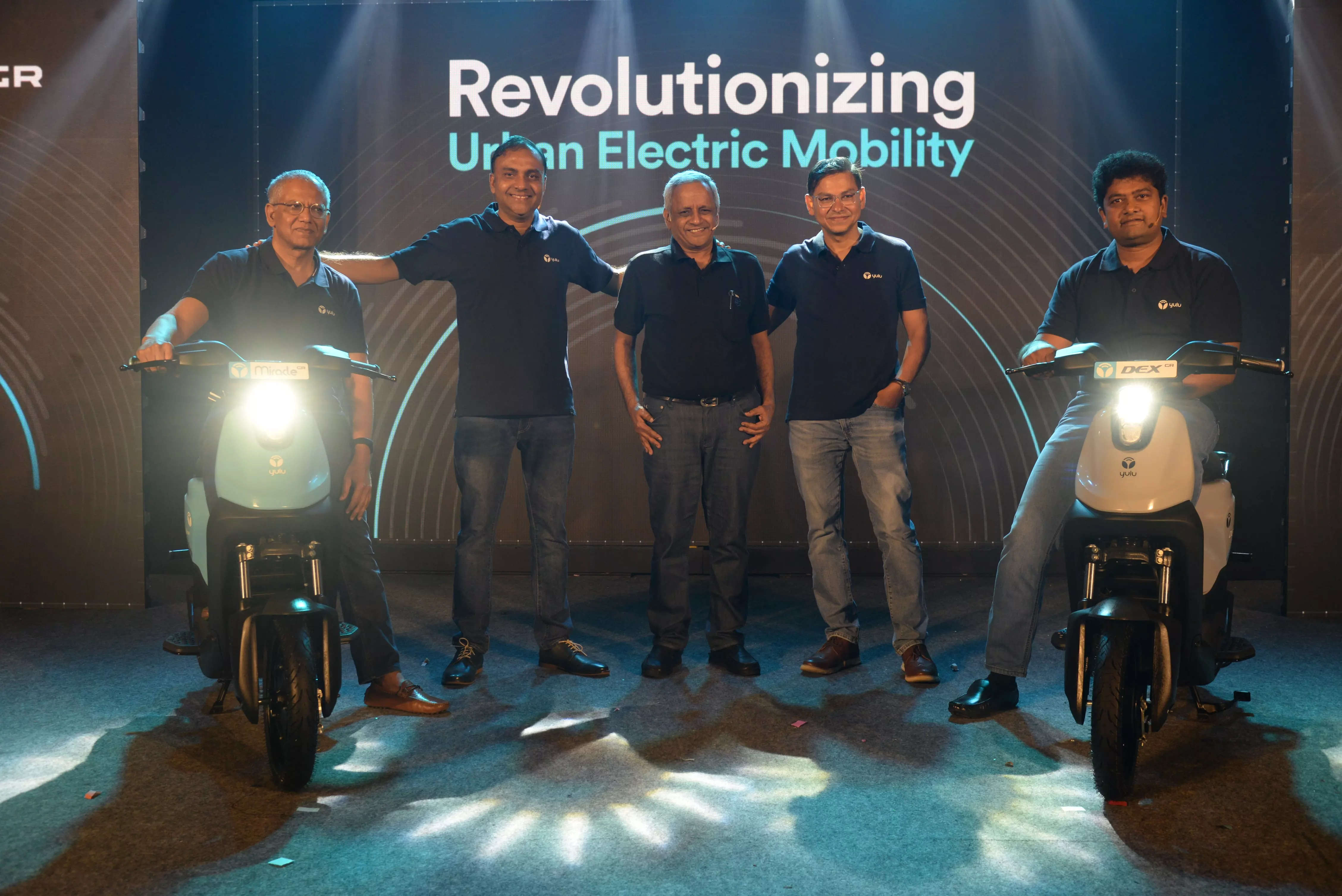
“We found a particular way with KTM and we found a slightly different way with Triumph. We’re finding something else here. So we’ll be absolutely nimble, as usual. We’ll work on partnerships, and the partnership will continue as long as I’m relevant to Yulu and vice versa,” says S Ravikumar, President, Business Development, Bajaj Auto while talking about the EV strategy and the Yulu partnership.
With a total investment of USD 15 million, Bajaj Auto now holds close to 19% stake in Yulu, the highest after the promoter group. Yulu launched the third generation of its two-wheelers, Miracle GR and DeX GR, on Monday. They are developed on a purpose-built platform for electric 2-wheelers for Indian consumers, climate, and road conditions.
The new platform may have up to 6 variants. At least one of them could be for personal mobility which will be available for sale later this year.
The micro mobility sector “is a very related field, but something we’ll not do directly”, says Ravikumar. The Yulu bikes are produced at the Akurdi (near Pune) plant of Chetak Technology Limited, Bajaj’s EV focused company. The company has earmarked around INR 2,000 crore investment for the business in the next 2 years.
“We created Chetak Technology Limited as a 100% subsidiary mainly for this business space, where the idea and logic are that this will attract different types of talent and may attract different types of partnerships,” says Ravikumar.
Bajaj Auto has a presence in nearly 80 overseas markets, and Yulu has received expressions of interest from partners in some of them. A couple of South East Asian markets are set to be the ones that Yulu may ride into. “Every disruption is a point for growth, if you play the cards correctly. So this is a good opportunity for the startups. Why are they trying against established players? What does Tesla do against established car players? It took this opportunity and made the change. So, this may open up a lot of opportunities across the globe, where we already have presence, we already know the land, we have partners and distributors, and other basics in place,”says Ravikumar
Expansion and fundraising
Even as Bajaj and Yulu work on an international plan, the micro mobility service provider also plans to scale up its home play by adding 7,000 to 8,000 bikes to its fleet every month. Currently, it has a fleet of 15,000 bikes mainly in the three cities of Bengaluru, Delhi, and Mumbai. Yulu’s co-founder and CEO Amit Gupta wants to scale up the fleet size to over 1 million vehicles in the next 3-4 years.
Gupta estimates a requirement of around USD 500 million to fund the expansion. The plan is to raise that money mainly through debt. The ambitious expansion plan is also fuelled by the estimated workforce of around 10 million people for all delivery services in India. Gupta pitches for the Yulu bikes as the more preferred option as it has a claimed running cost of INR 2.75 per km, against an estimated INR 4.50 for an ICE two-wheeler.
Yulu expects to be EBITDA positive this year. Along with the fleet expansion, Yulu also plans to add “business partners’ in franchisee-like models, to offer its services.
Along with the mobility business, Yulu’s battery swapping business also looks to expand its presence to 500 touchpoints by the end of this year, from the 100 currently.
As new business models emerge, Yulu’s partner Bajaj Auto wants to make its moves accordingly to achieve sustainable growth. “We should be ready for change, we should be nimble. So I should be able to play the card because they don’t have it, but as you know, in a personal mobility space like this, there will always be an attachment to the car and an attachment to the motorcycle.”
Ravikumar likens the micro mobility service, and the new two-wheeler form factors, to the autorickshaw story. “What did people say 10 years ago about the autorickshaw? It’ll go away, It’ll disappear from the face of the earth, they said. But it’s such a beautiful economic proposition; nobody will be able to shake it. It will thrive in many, many countries, it has actually grown and grown in many countries,” says Ravikumar.
When asked about how different products fit into the overall EV strategy and how to demarcate them, he said, “We should be able to stand on our own legs as far as R&D is concerned. Once you’ve done that, the second thing Bajaj has done in the traditional ICE spaces is that my R&D entire business team can put on a hat for a USD 500 product and talk about every single rupee, every single km of fuel efficiency, etc., and deliver that product as needed.”
With the new set of products, both Bajaj and Yulu are looking at a better ride in the emerging mobility industry. And the Yulu 3.0 with two variants is the “first product of many, many more to come from the collaboration”.
Also Read:















